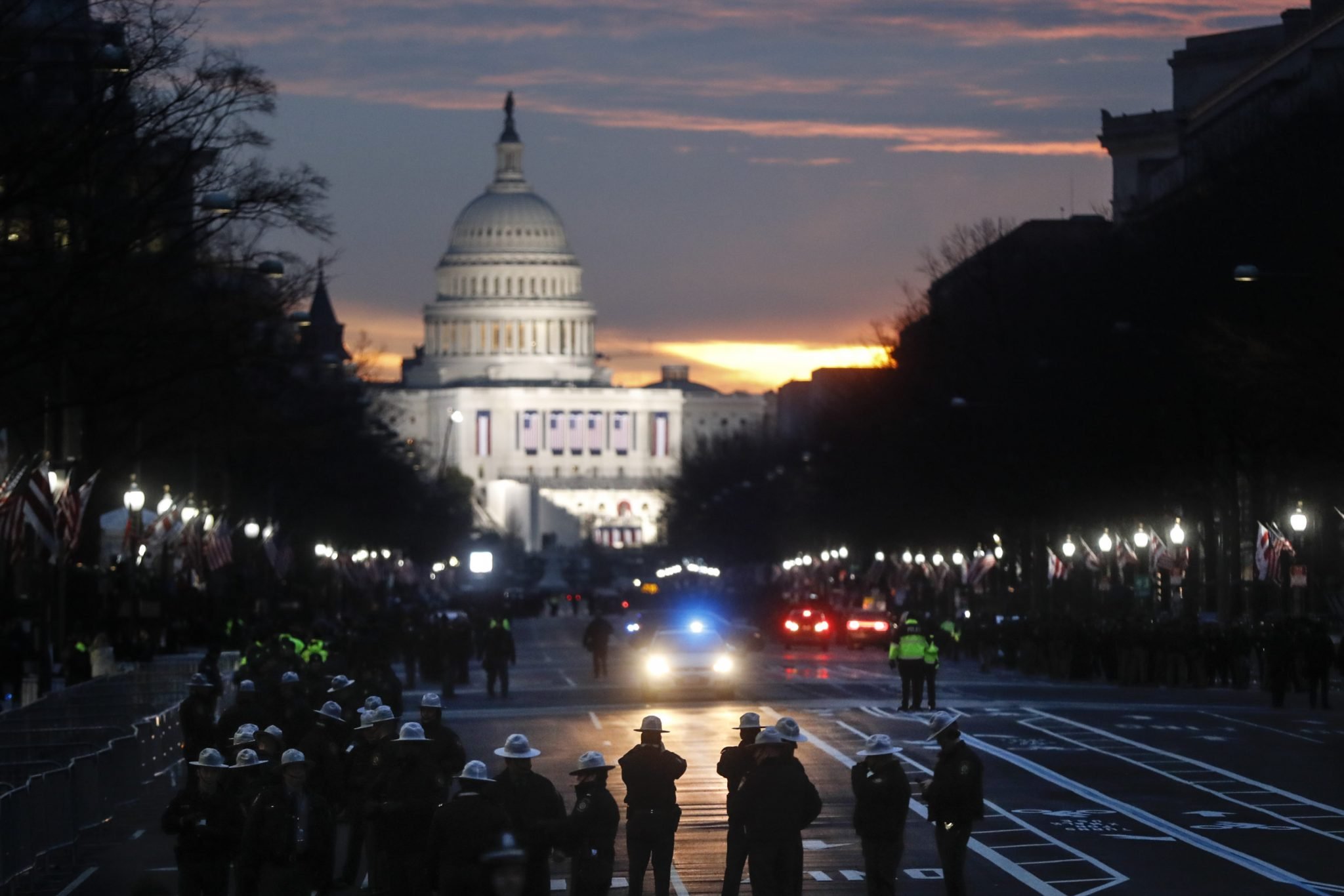For the more than 600,000 new residents the Washington area has taken on since 2009, the inauguration of Donald Trump as President will mark a new sensation. It’s not quite sadness that Barack Obama no longer sits in the Oval Office or a deep disgust for the personal history and conduct of the new commander-in-chief—those are more universal sentiments—but an unfamiliarity with living in a city and region when the White House is in hostile hands.
I am one of them. I moved to Washington because of Obama’s election, as one of many cogs in his 2008 campaign machine with brief visions of working in government. The only time I’ve lived in DC under a Republican president was the final two weeks of George W. Bush’s second term.
Moving to DC during those early Obama years felt like the righteous thing to do. Plenty has been written about how the recovery out of the Great Recession benefitted coastal cities with better-educated workforces, like Washington, more than it did the interior sections of the country that voted for Trump last year. But unlike other cities that thrived after 2009, DC had the added benefit of the Obamas’ magnetism—even if, according to the Brookings Institution, that it actually grew far more slowly than other major metropolitan areas.
Washington today is still an economically robust region that continues to chug ahead and grow in population. But even if Trump and his allies in a Republican-dominated Congress fail in their promises to put all us swamp-dwellers in the poorhouse—remember, only 12 percent of the region actually works for the federal government—local boosterism will be much tougher. The peaceful transition of power means that the presidency is changing hands from someone who’s an ally of Washington’s biggest exports—knowledge, expertise, ideas, and policy—to someone whose entire political career is built on outward hostility toward those concepts.
So what will Washington be like on Monday? The Trump voters who flew in for the inauguration will have gone home, the protesters who tried to jam security checkpoints and Metro stations will be a thinner herd, and everyone else will get on with their lives. It won’t be joyous. I imagine, in a city where 96 percent of voters selected someone other than the new president, the first few days or weeks of the Trump administration might feel a lot like November 9, when people seemed to walk down the street or ride the bus in silent shock, as if something wonderful had been yanked away from us. Even if the changes Washington’s experienced over the last eight years are more a result of Obama’s policies than his personality, seeing him replaced by a man who is every bit his antithesis is crushing.
Perhaps you’ll take the advice Leon Wieseltier offered a few days after the election and “stay angry.” Or you’ll bunker down, as Jonathan Chait wrote in those first hours after the unthinkable happened, and “stay and fight” for democracy. As a former Obaman, I told anyone who’d listen that I’d never get over the emotional blow of last year’s election.
Yet framing how you’ll cope with Trump’s Washington with pieces by cranky opinion writers just reduces politics to sports. No strongly worded editorial, Twitter thread, Saturday Night Live sketch, John Oliver tirade, or overly emotional hot take will change the fact that Donald Trump is the president, and that he openly opposes the city where he now resides. Moping about the numerical outcome of an antiquated electoral process is boring and pointless. The country has the system it has, and it dealt Washington a crappy hand.
But Washington’s been here before. Trump’s unquenchable rudeness and strongman tendencies should remain top-of-mind as his far-right administration picks apart years of progressive achievements, but DC has plodded through previous antagonistic federal governments. Four years of a united GOP government between 2003 and 2007 brought plenty of unsavory policies down on the District, from school vouchers to blocks on legalizing same-sex marriage to attempts to water down the city’s gun laws, and yet the city survived. A Republican Congress in the 1990s—led by Newt Gingrich, who wants to replace the entire civil service with patronage jobs for loyal Trump stooges—imposed a financial control board on DC that effectively voided the city’s own civic agenda. In the early 1980s, a young deputy to Attorney General Edwin Meese named John G. Roberts wrote opinions that prevented the District from writing its own criminal code.
And yet, DC’s still here. The city, even with its incumbent issues of housing inequality and an recent uptick in violent crime, is far more resilient than it gets credit for. The regional economy is still strong. The population continues to grow. The tables at Comet Ping Pong are full, obnoxious picketers be damned. And unless the experts of the 1980s have changed their opinion, Meese is still a pig.
Setting aside policy arguments, what’ll be most different for Washington in the short-term is all emotional. When you go by the White House, you’ll look on with scorn instead of pride. You’ll have to pitch other people on the joys of Washington without the built-in wattage Obama’s presidency offered.
I spent the nights of January 20 and 21, 2009, partying with the rest of the Obama people, many of whom were also brand-new to DC, which suddenly felt like the coolest city in the world where anything was possible. Seven years and 364 days later, I walked by a photo of Obama’s first swearing-in that hangs at the end of the main gallery at the Smithsonian’s National Museum of African American History and Culture. (I’m somewhere under that tree on the right edge of the image.) In 2009, the southwest corner of Constitution Ave. and 14th St., Northwest was an unrealized construction project. Today it’s the most wholeheartedly American of any cultural institution in Washington, and this photo jumps out like an exclamation point, not the end.

















